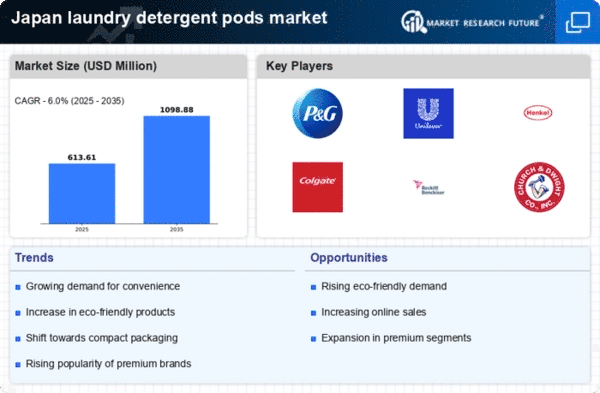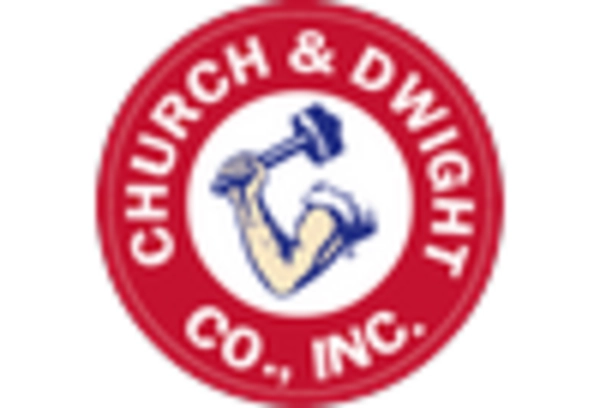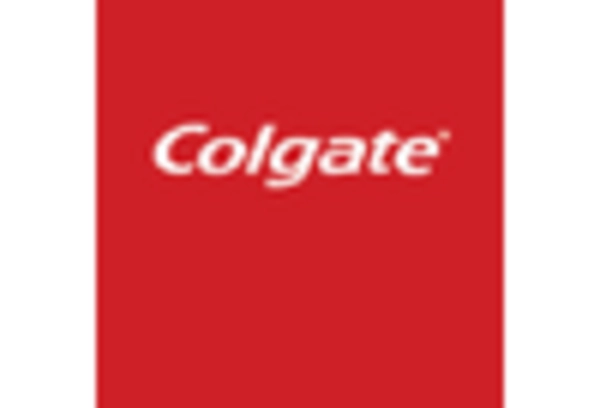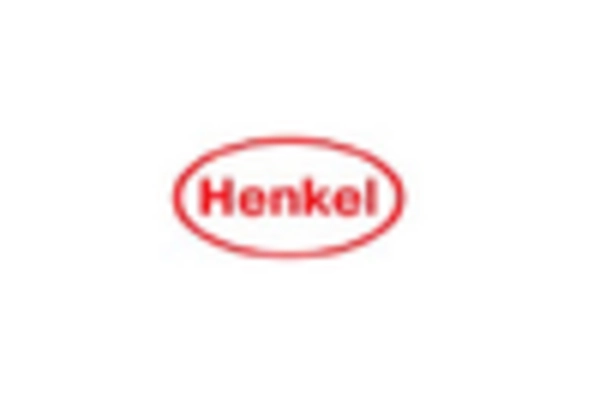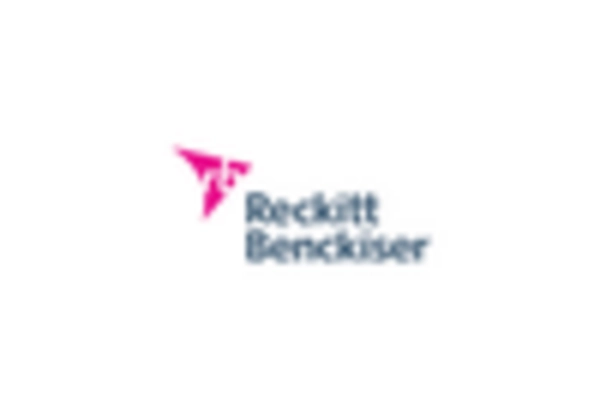Rising Urbanization
The ongoing trend of urbanization in Japan appears to be a significant driver for the laundry detergent-pods market. As more individuals and families move to urban areas, the demand for convenient and efficient laundry solutions increases. Urban dwellers often have limited space and time, making the compact and easy-to-use nature of detergent pods particularly appealing. According to recent data, urban populations in Japan are projected to reach approximately 91% by 2030, which may further boost the demand for laundry detergent-pods. This shift in demographics suggests that manufacturers in the laundry detergent-pods market must adapt their offerings to cater to the needs of urban consumers, emphasizing convenience and efficiency.
Environmental Regulations
Stringent environmental regulations in Japan are shaping the laundry detergent-pods market. The government has implemented various policies aimed at reducing waste and promoting sustainable practices. As a result, manufacturers are increasingly focusing on creating eco-friendly products that comply with these regulations. This shift is evident in the growing number of biodegradable and recyclable packaging options for laundry detergent-pods. Market data indicates that eco-conscious products are gaining traction, with sales of environmentally friendly laundry products rising by approximately 30% in recent years. Consequently, the laundry detergent-pods market is likely to expand as consumers become more aware of environmental issues and seek products that align with their values.
Health and Safety Concerns
Growing awareness regarding health and safety issues associated with traditional laundry detergents is influencing consumer preferences in Japan. Many consumers are becoming more cautious about the ingredients in their cleaning products, leading to a shift towards laundry detergent-pods that are perceived as safer and more environmentally friendly. The laundry detergent-pods market is responding to this trend by offering products that are free from harmful chemicals and allergens. This shift is supported by data indicating that approximately 60% of Japanese consumers prioritize safety and environmental impact when selecting cleaning products. Consequently, manufacturers are likely to focus on developing pods that align with these health-conscious consumer preferences.
Technological Advancements
Technological innovations in the formulation and packaging of laundry detergent-pods are likely to enhance their appeal in the market. Advances in chemistry have led to the development of more effective cleaning agents that can be encapsulated in pods, providing superior stain removal and fabric care. Furthermore, improvements in packaging technology ensure that these pods remain stable and effective over time. The laundry detergent-pods market in Japan is expected to benefit from these advancements, as consumers increasingly seek products that deliver high performance with minimal effort. As a result, manufacturers may invest in research and development to create innovative products that meet the evolving expectations of Japanese consumers.
Changing Consumer Lifestyles
The evolving lifestyles of Japanese consumers are driving the growth of the laundry detergent-pods market. With an increasing number of households adopting busy schedules, there is a growing preference for products that save time and effort. Laundry detergent-pods offer a convenient solution, allowing consumers to quickly and easily measure the right amount of detergent without the mess associated with traditional liquid or powder forms. This shift in consumer behavior is reflected in market data, which suggests that the demand for laundry detergent-pods has increased by approximately 25% over the past few years. As lifestyles continue to change, the laundry detergent-pods market is likely to see sustained growth as consumers seek out efficient and hassle-free laundry solutions.


